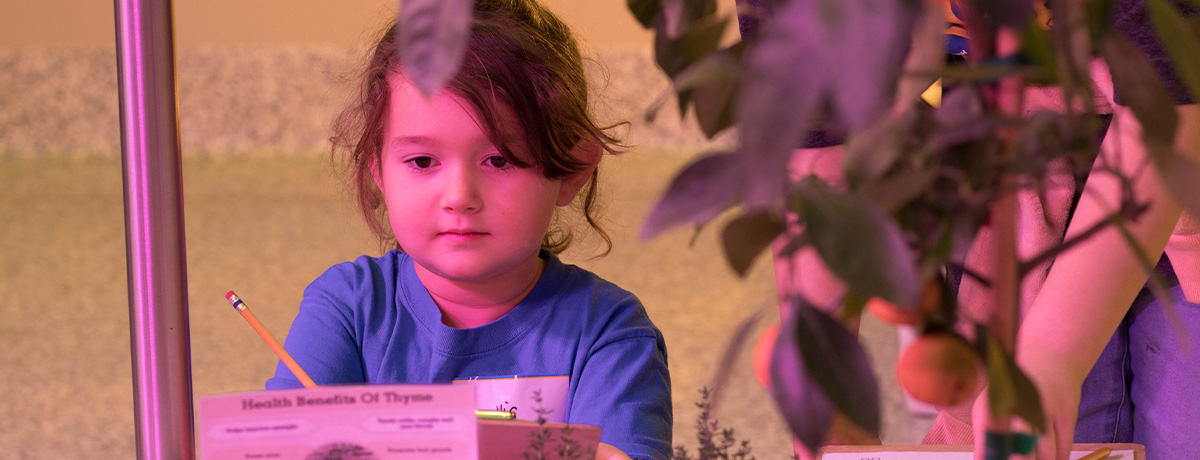Enrollment Now Open for Second Semester. Click Here
Enrollment Now Open for Second Semester. Click Here

Unexpected changes in behavior can be stressful for both you and your child. However, there’s no need to worry — behavioral change is completely normal and a natural part of child development.
As a parent, guardian, or caretaker, there’s a lot you can do to help your youngster navigate this challenging time. Learn how to deal with children’s changing behaviors by exploring common causes, signs, and behavior management techniques.
Behavioral changes in kids typically stem from internal factors — like mood and mental health struggles — or external factors such as stressful life situations and physical environment.
Here are some examples of factors that can affect behavior:
As a result of these factors, parents may notice their child having frequent temper tantrums, growing more impatient, or exhibiting other unusual behaviors. Teens may experience mood swings, sleep more, struggle with their appearance, or start to show patterns of withdrawal. In more serious cases, they may turn to substances to cope.
For these reasons, it’s important to teach your child positive behavior change. This includes modeling good behaviors, listening actively to your child’s feelings and needs, and creating a safe, healthy environment at home.
Certain physical, emotional, and personal factors can lead to changes in a child’s behavior. Let’s explore situations that often bring on these factors.
Many physical and emotional changes take place during puberty, all of which can influence behavior. Some common behavior changes during this developmental stage include:
Your teen may also develop new friendships or start to withdraw more. Showing an interest in relationships or hobbies or losing interest in academics can be normal and may fluctuate from week to week or even daily. In addition to major physical and bodily changes, many emotional changes are taking place. That said, puberty is a time of great change for both teens and their parents.
There will be times when your child is difficult to get along with or refuses to communicate. It’s important to provide reassurance, support them through their physical and emotional changes, model positive behavior, and respect their need for more privacy. It’s important to remain as calm, steady, and structured as possible, remembering to set proper boundaries and disciplinary measures. Although your teen may act out and test established boundaries, in a time of such widespread and sometimes overwhelming.
Stressful and sometimes traumatic life events can spark personality or behavior changes. While everyone reacts to stressful life events in different ways, some types of behavioral change may include a lack of focus and motivation, restlessness, depression or anxiety, social withdrawal, or irritability.
Below are some stressful life events that may cause behavior changes in your child:
Mood changes are quite common in children and can happen at any age. Moodiness can be a result of puberty or simply a natural change in behavior. It’s most common during adolescence and can stem from factors like hormones, peer pressure, and academic struggles. When children try to discover where they fit into society, they often experience episodes of moodiness and a rollercoaster of emotions.
Another possible cause of sudden behavior changes in kids is a change in a long-time friendship or relationship. When your child experiences relationship conflicts and loses a friend as a result, it can be tough on their emotional health and well-being. Additionally, when your child makes new friends, they can be easily influenced by the behaviors of others and start to exhibit different behaviors themselves.
You may find that your child’s behavioral changes are accompanied by a loss of interest in things they once enjoyed — whether it’s extracurricular activities, friendships, or hobbies. Teens may go through bouts of dissatisfaction with their current activities or feel they aren’t “cut out” for what they once enjoyed.
As a result, they may feel the need to branch out and explore new interests. Trying to discover what they’re good at or where they fit in can cause major emotional and behavioral changes. Encouraging your child to try out new clubs and activities may help reveal untapped skills and interests.
Every child is different, meaning certain techniques may be more effective than others. While the methods below are simply suggestions, you may find one or more of them to be effective with your youngster. Here are three behavior management techniques to try:
At CCA, ensuring every student feels safe and comfortable in our online learning environment is a top priority. That’s why we provide family mentor programs and anti-bullying resources for behavioral, mental, and emotional health.
At CCA, we understand our responsibility to protect students from bullying. Our network of personal, family, and academic resources aims to help victims heal and thrive. In addition, our keen oversight and frequent communication with families build a respectful school culture that stamps out bullying at the first signs. School should be about learning and, at CCA, great care is taken to protect all learners and support their successes in academics and beyond.
To learn more about how CCA supports students during difficult times, contact us or request information today.
Enrollment Now Open for Second Semester. Click Here